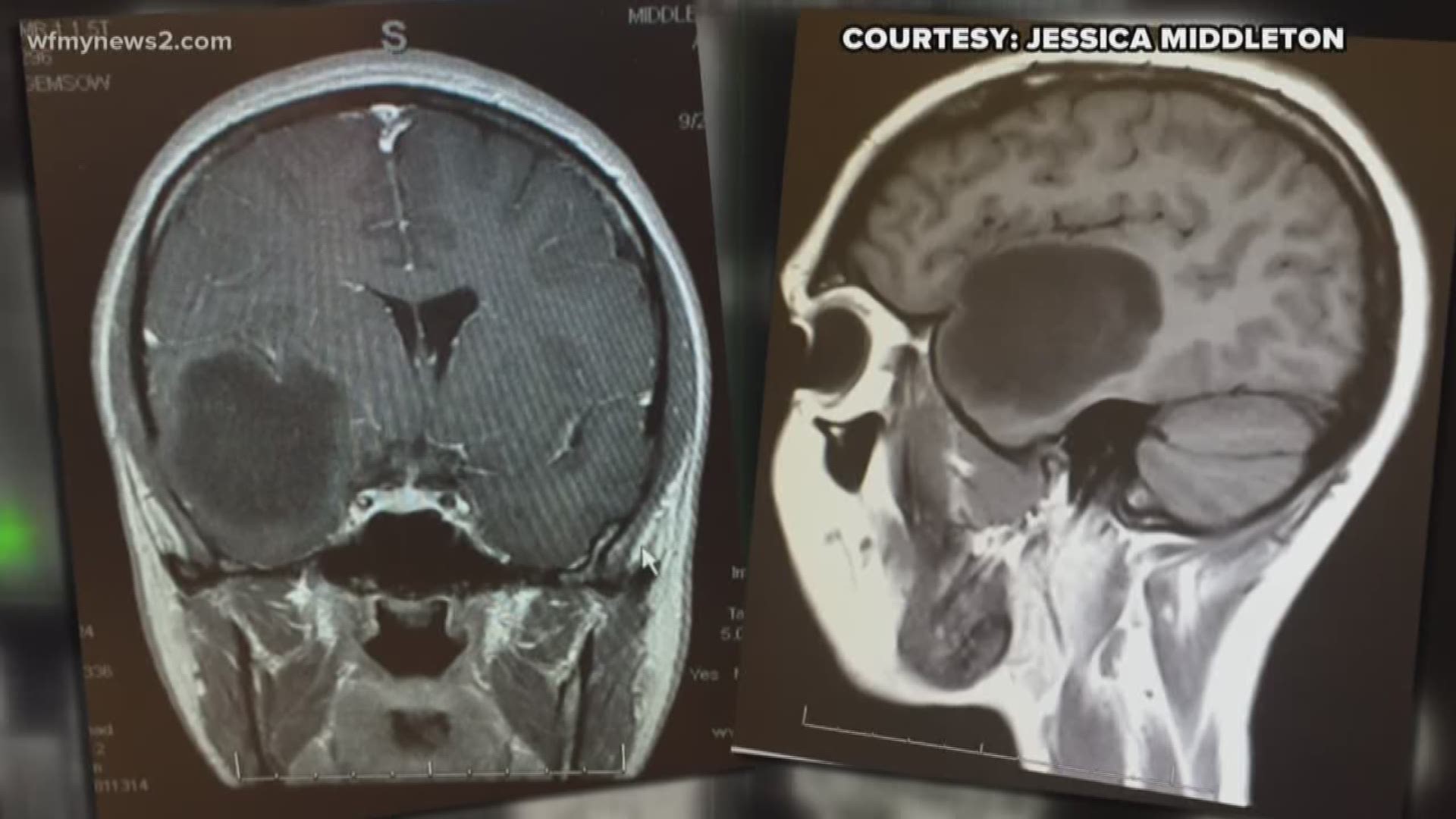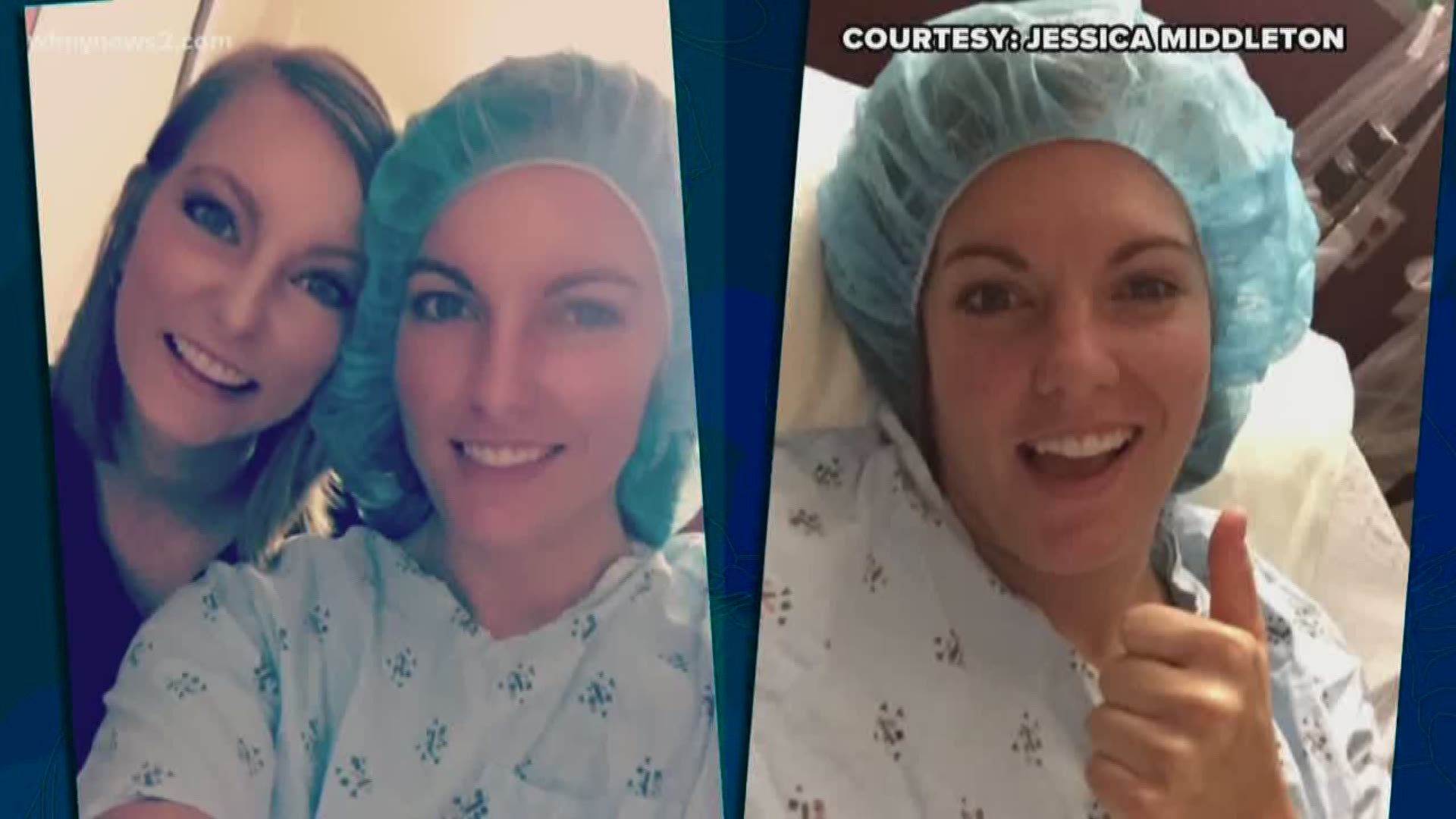(2 Your Well-Being )--A Triad woman is surviving brain cancer with the help of her doctors at Cone Health. The disease almost always ends in death, but there is growing hope for patients to beat it. In this month's 2 Your Well Being segment, Jessica Middleton shares her fight and her key to living a longer life.
"I've been blessed beyond measure," said Middleton. The 28-year-old Pleasant Garden native appreciates every moment she spends doing the simple things because statistics show there is a 90% chance, she shouldn't be alive. "I've been healthy my whole life, never really was sick much. I exercised," said Middleton. "Whenever I got diagnosed I said you don't get a call from the cancer center if you don't have cancer."
She was 25 when doctors said she had one of the most aggressive forms of cancer in her brain. "I got the call that I had an Anaplastic Astrocytoma Glioma and I was like how do you say that?" Left untreated the tumor can cause vision and memory loss, weakness, seizures, and death.
Her symptoms started with bad headaches.
"I would be (shaking) trying to drink my drink. I would wake up in the most excruciating pain and it would move from my elbow to my wrist," explained Middleton. By the time Jessica got checked out, the tumor was stage 4.
"It was 3 and a half centimeters, so bigger than my fist," she said. "My initial reaction is that I'm going to die! Am I going to die next week?" Doctors had to operate right away. So she came to the Cone Health Cancer Center at Wesley Long. "Brain tumors, in general, are pretty rare," said Dr. Zack Vaslow. "About 90% of patients who end up having brain tumors are spread from other cancers in the body like lung cancer and breast cancer."
Dr. Vaslow is one of the neurooncologists treating Middleton and thousands of other patients who are fighting the same battle. "The reality is a lot of those patients don't live that long. I always tell patients there's always room for hope," he said. Hope is what got Middleton through 6 weeks of radiation. And hope pulled her through the sadness of losing her hair during a year of chemotherapy.
Middleton is used to hanging onto hope. She clung to it when she lost her mother to cancer a year before her own diagnosis. "My Nana had breast cancer, my mother had multiple myeloma and I had a brain tumor," she explained.
Dr. Vaslow says though not every brain cancer is operable, it's worth the fight! "We don't tell patients to go home and get your things together and give up," said Vaslow.
"I'm not done yet, I want to see places, I want to do things, I want to meet people," she says. And now she has new reasons to smile.
"I'm planning a wedding!"
"My prince charming asked me to be his girlfriend right after surgery and I told him it was a weak moment and I had to say yes," said Middleton.
Dr. Vaslow says it is extremely rare for patients Jessica's age to be diagnosed with this form of brain cancer. He says it typically surfaces in people who are between 40 and 50. While there are ways to treat it, Vaslow says brain cancer never completely goes away, so there is a small chance that cancer can come back.


